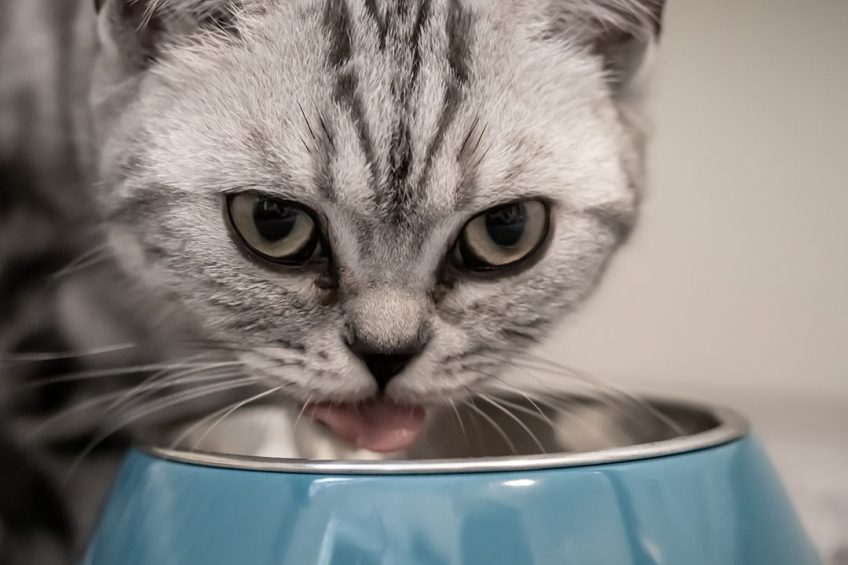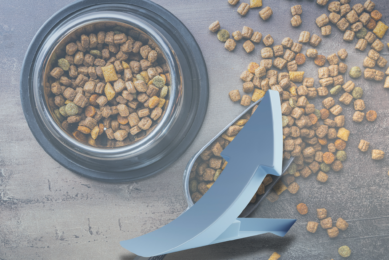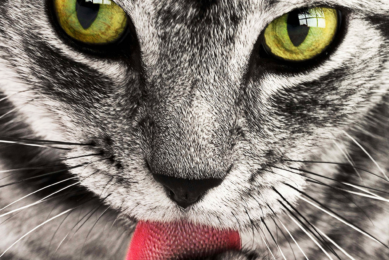More pets boost Polish pet food market

The Covid-19 pandemic has speeded up the Polish market transition to ready-made pet food and promises to boost domestic sales in the years ahead to the benefit of emerging local producers, who are being encouraged to compete with the international giants.
There are already 14 million dogs and cats living in Poland under one roof with their owners. If there is no pet in a house yet, statistically speaking, you will definitely find one next door. Every second household keeps at least one, and most owners consider their pets to be family members. On the other hand, the Polish pet food market is relatively immature, and the popularity of ready-made pet food differs from that in Western Europe. In Poland, it is estimated that only a third of pets are fed ready-made food, compared to 90% in Germany or Belgium.
Social distancing measures and self-isolation at home have driven people to compensate for the loss of social interaction with animal companions.
Pet food market grows during pandemic
Despite the pandemic hampering GDP growth in Eastern Europe, the pet food market in this region continued to grow, reaching 2 million tonnes in physical terms and € 6.3 billion in monetary terms in 2020, according to research conducted by Euromonitor International.
The Polish pet food market outperformed the region’s average, showing a 6% increase in physical terms and a 4% increase in monetary terms in a year-to-year comparison, reaching 387,000 tonnes (worth € 914 million), said Aleksandras Bacevicius, an analyst with Euromonitor International.
Trends as a result of covid
The Covid-19 pandemic brought about several important trends. First, the number of pets increased by 1.8% compared to the previous year, rising to 20.4 million. “Social distancing measures and self-isolation at home have driven people to compensate for the loss of social interaction with animal companions. This was especially the case among elderly social groups,” Bacevicius said. In addition, spending more time indoors, Poles had the opportunity to reconsider their pets’ diets. Euromonitor International estimated that a third of all dogs and just over 40% of all cats in Poland are fed with ready-made pet food. Both figures are on the rise, which is in line with what is seen in other Eastern European countries.
Premiumisation of pet food
The Polish pet food market also experienced a trend commonly described as premiumisation, with a rising number of customers switching to purchasing better and more expensive pet food. However, this trend is yet to be reflected in the sales statistics. Premiumisation also created an individually tailored pet food segment.
PsiBufet, founded in 2016, was a trailblazer in this niche. The company sends pet food all over Poland in cycles from 2 to 4 weeks, under a subscription model. The pet food composition is selected by a specially designed algorithm using information about the pet’s weight, activity, allergies, and several other health parameters. This aligns with the changing pet food market in Poland.
The rise of smaller companies
Until recently, the industry was dominated by the FMCG industry giants: Mars with Pedigree, Royal Canin, and Whiskas are the most popular brands, just like Nestle with Purina and Felix, as well as Butcher’s Pet Care. “Currently the international companies’ share is declining to the benefit of smaller companies, usually local, selling mainly through traditional channels, but also developing e-commerce. They offer products under their own brands, successfully competing with the well-known global companies,” said Michał Kierul, an analyst of the Polish consulting agency Navigator Capital. Most local pet food producers in Poland are relatively small companies. It is estimated that the revenues of each of the largest local suppliers, such as Pupil Foods, DNP – the owner of the Dolina Noteci Premium brand, Maced, or Mispol with Tropi, Barney, and Miao brands do not exceed or only slightly exceed sales worth PLN 100 million (€ 21 million) per year.
In the next few years, we can expect increased merger and acquisition (M&A) activity in the Polish animal food sector.
Consolidation expected
Polish pet food companies are also predicted to form an alliance and merge in the coming years in order to become even more competitive in the domestic market. “The rapid growth of the market and the large fragmentation of Polish companies support the trend towards greater consolidation. In the next few years, we can expect increased merger and acquisition (M&A) activity in the Polish animal food sector,” Kierul said. All players now have to adapt to changing market conditions. For example, Poland experiences strong growth in single-serve pet food products, like wet food in one-portion packages. Like in many other segments, the Covid-19 pandemic caused a boom in online pet food sales in Poland. “While small companies sell their own brand products, usually in traditional stores, the Internet channel is the focus of attention for large players, whose growth potential is much bigger. Sales via e-commerce channel are growing at a double-digit pace,” Kierul said. All in all, the Polish pet food market is expected to grow at 7% per year over the next few years, and this trend may well accelerate.
Insect-based pet food
In the years ahead, Polish pets are likely to see their diets slightly changing, among other things, because the country’s insect protein producer HiProMine intends to increase capacity. In July 2021, HiProMine raised PLN 26.1 million (€ 5.7 million) to fuel further development by issuing shares in the private subscription mode, the company said in a statement. HiProMine intends to introduce all its shares to the NewConnect market in the coming months.
“Thanks to the construction of a production plant based on our own proven and patented technology, we plan to enter the huge market of feed materials and become one of the leaders of the dynamically growing segment of insect protein in Europe,” president and co-founder Damian Józefiak said in the statement.
So far, HiProMine has supplied insect protein for the production of pet food and aquafeed. The company plans to produce more than 300 kg of insects per square metre per month – mainly Hermetia illucens that have a very rich nutritional profile. Józefiak explained that the company planned to collect animal food waste to source enough feedstuff for its project. HiProMine doesn’t disclose the current and the target production figure but hopes to become one of the largest European producers, selling insect protein not only to Polish but also to foreign customers.
Rise of vegan products
As well as insects, Polish pets may soon be getting accustomed to eating lab-based meat. The biotechnology startup Bond Pet Foods has analysed and developed a chicken protein in laboratory conditions, which, the company claimed, could be used in dog and cat food. The company executives said that the concept of suffering-free meat is a step into a better future (more responsible and sustainable), while at the same time providing animals with a nutritious source of protein. The production process, as Bond Pet Foods claims, is similar to the way beer and cheese are produced. “From the collected chicken blood sample, laboratory chicken meat is produced for a pet, without the use of animals. Ultimately, the product will contain the basic nutrients of conventional poultry meat, including essential amino acids,” the company said. Last year, Bond Pet Foods received US$ 1.2 million in funding to support the research and development of laboratory meat products. Bond Pet Foods intends to debut in 2023 with its first chicken protein products.











